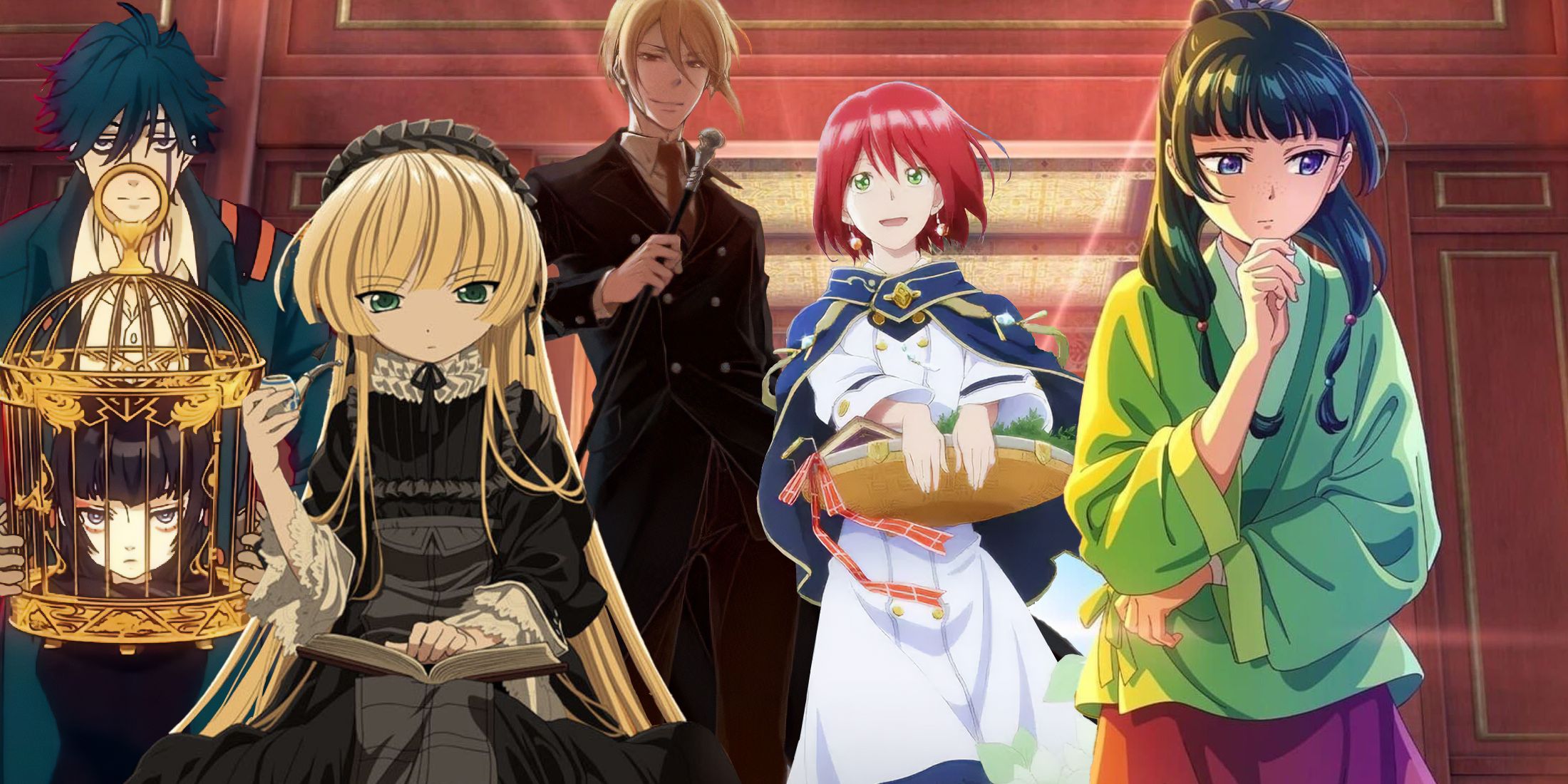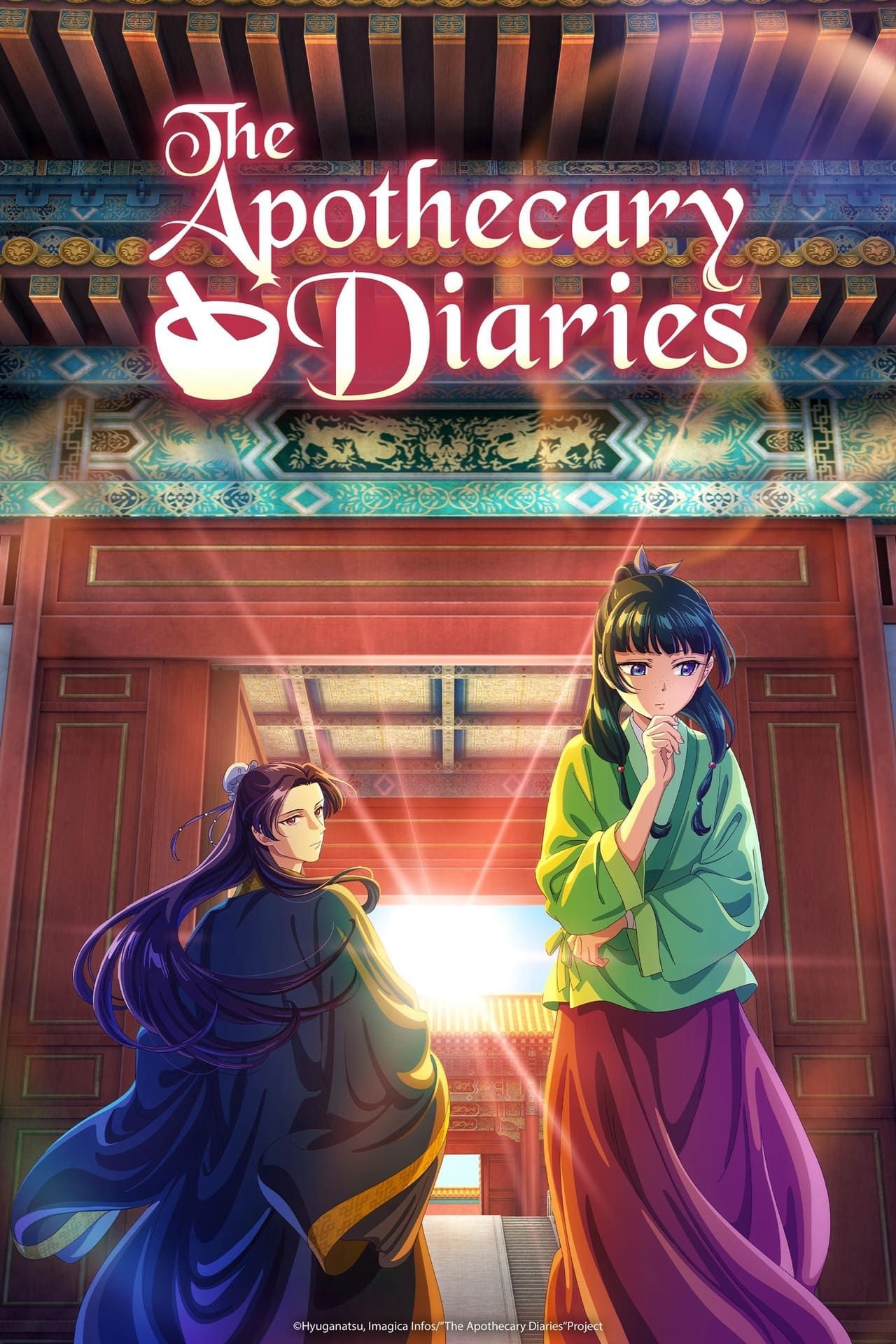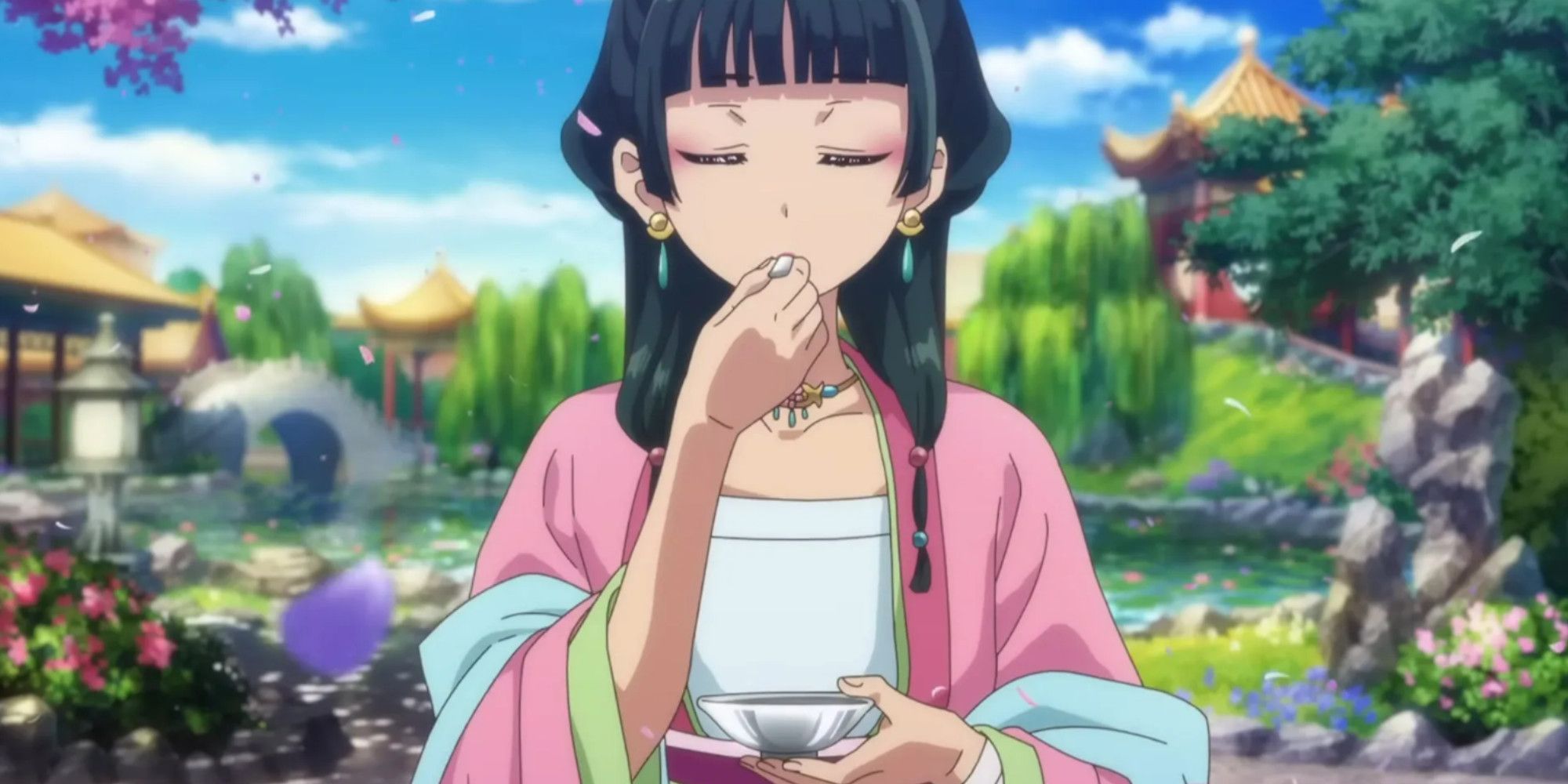Summary
- Apothecary Diaries passes the Bechdel Test by featuring conversations between women on topics other than men.
- The show offers a fresh perspective by showcasing strong female characters in a male-dominated genre.
- Despite checking off the Bechdel Test, the series excels not just for its female representation but also for its intriguing mysteries and rich setting.
Quick Links
With a vibrant female cast and unique take on an often romanticized period of history, fans may be wondering: does Apothecary Diaries pass the Bechdel Test? It’s a question worth asking, considering how the entire cast is locked into a position that revolves around one man.
With a protagonist like Maomao, one could only assume that this intriguing tale of murder and medicine would pass with flying colors, but considering the setting, is that even possible? Is Apothecary Diaries a story about women, or are they only present to provide the viewers with eye-candy, like so many other popular titles? A look into the first episode may answer that question.

Related
Historical Anime To Watch If You Love The Apothecary Diaries
Historical anime fans who enjoyed The Apothecary Diaries are spoiled with choice when it comes to other, similar anime of the same genre.
How to Enjoy the Story
|
Light Novels |
Apothecary Diaries |
15 Volumes (Ongoing) |
|---|---|---|
|
Manga |
Apothecary Diaries |
15 Volumes (Ongoing) |
|
Manga |
Apothecary Diaries: Maomao’s Notes From the Inner Palace |
20 Volumes (Ongoing) |
|
Anime |
Apothecary Diaries |
2 Seasons, 35 Episodes (Ongoing) |
Apothecary Diaries, known as Kusuriya no Hitorigoto to its Japanese audience, is the story of a low-born girl who was adopted by a skilled apothecary. She grew up just outside the pleasure district, the maternal figures in her life all working in a renowned brothel. Taking an interest in what her father taught her, Maomao studied diligently, even performing her own experiments in order to further her expertise. In an unexpected turn of events, she was kidnapped and sold into service in the Emperor’s rear-palace, home to his collection of concubines.
Her astute observational skills coupled with her extensive knowledge led her to diagnose an illness that had befallen two high-ranking concubines and their infants. Not willing to leave things alone, she delivered a message to each of the women, warning them of the cause of the sickness. Despite going to great lengths to remain anonymous, a beautiful eunuch, Jinshi, sussed her out, forcing the conscripted servant into an audience with Gyokuro, the concubine who heeded her warning. After expressing her thanks, the gorgeous concubine informs Maomao that she will now be serving as her lady-in-waiting.
Pass or Fail?
In this whirlwind of events, the first episode sets the tone for the series quite well. Maomao has education far beyond her station, and makes a point to keep that fact a secret. She is well-aware of her position, often reminding herself of her own expendability within the hierarchy of the rear-palace. With such a shrewd female lead, it’s hard to imagine that she would spend all of her breath speaking only of men.
That being said, keeping her status and position in mind, it wouldn’t be out of the question for the Emperor to be a regular topic of conversation, not to mention the “beautiful eunuch” that the palace’s residents can’t stop gossiping about. After analyzing the first episode, it’s actually surprising how infrequently the two aforementioned men are spoken of among the female cast when they’re alone, outside of sharing news and gossip. With that information in mind, perhaps it would be beneficial to go over what the Bechdel Test actually is.
What is the Bechdel Test?
Alison Bechdel created the Bechdel Test, also known as the Bechdel-Wallace Test, in the 1980s to gauge the presence of female characters in media. This test has only three pass or fail rules:
- There must be at least two female characters.
- These women must converse.
- The conversation has to be about something other than a man.
While it sounds like a simple set of requirements, it’s shocking how many books, films, and television shows fail to clear the bar. Even beloved movies like Breakfast at Tiffany’s and The Princess Bride couldn’t cut the mustard. While this test doesn’t necessarily prove whether a story is good or bad, it certainly is something to consider. Keeping all of that in mind, episode one of Apothecary Diaries clears all three hurdles with flying colors.
This is How it’s Done
Rule number one is an obvious pass, considering the mostly-female cast. With prominent characters like Paimei, Xiaolan, and the Madam taking up much of the first few minutes of the show, it’s clear that this is a story about women. Naturally, with so many girls on screen, it’s no surprise that they often interact. The majority of the conversations were, in fact, between these ladies. Seven of them, to be precise. Of these seven conversations, only two were about men, three if you count the discussion of the emperor’s newborn son. For those who want to be sticklers, one could argue four, if requesting Maomao to say hi to her dad is to be counted. All things considered, Apothecary Diaries does a fine job of representing the fairer sex.
A Winner, Regardless
Just passing this test doesn’t automatically make this tale high literature. If all it took to write a good story was to check off a few boxes, everyone would be a prize-winning author. What makes this show great isn’t just its well-written women. It’s the fresh perspective it gives to not only an interesting portion of history, but a genre that is often dominated by male leads. Maomao and the rest of the cast are all characters with depth and purpose. Every new mystery is a joy to watch unravel as the apothecary and her companions pick through clues and rumors to unearth hidden truths. Whether it’s for the intriguing characters, the beautiful animation, or the thrill of finding answers, Apothecary Diaries is a must-watch for not only women, but anyone who enjoys a good medical drama.

- Release Date
-
October 22, 2023
- Directors
-
Norihiro Naganuma, Akinori Fudesaka
- Writers
-
Norihiro Naganuma
- Franchise(s)
-
The Apothecary Diaries
















Leave a Reply